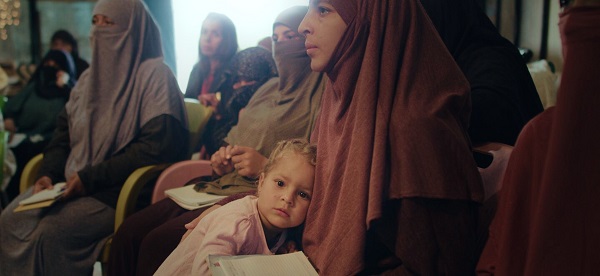
Life After Isis has the most difficult thing to ask for their viewers and that is to sympathize with girls and women who joined ISIS when that unrecognized state still existed. And that ask has bigger ramifications. If these girls and women gain our sympathy, that means that they can come back to the countries they betrayed. And for the most part, the subjects here earn our sympathy. Many scenes have the director interviewing these subjects, and they talked about the freedom that ISIS promised. Even travelling to Syria got them that freedom and made them feel an early enthusiasm.
The defunct rogue state means a lot of things to the subjects in Life After ISIS. British born Shamima Begum, the doc’s most famous subject, joined when she was 15. She couldn’t consent to anything political at that time. And to her, that state meant a lot of things. The Kurdish woman running the refugee camp where Begum and the other former female recruits live have different yet nuanced opinions. She’s trying to deprogram the girls and women who, in their own way, killed her family. This realization makes for a good climatic moment of genuine heartbreak.
Depicting these two sides feel comprehensive enough, but this doc takes one step further into giving its viewers the big picture that we need. It sometimes quickly switches from the interviews to archive news footage of all these girls. Together, they were trying to flee ISIS as Coalition forces were closing in on them. The interviews contextualize that footage. Begum specifically explains that getting herself and her children out was a bigger priority than the false version of Islam that the state promised her. Her voice is a reminder that despite mainstream ignorance, there are human beings behind enemy lines.
- Release Date: 4/29/2021


